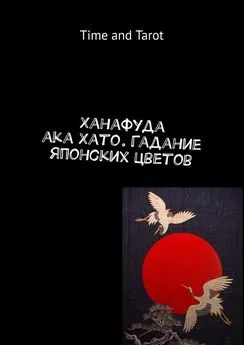Toni Morrison - Tar Baby
- Название:Tar Baby
- Автор:
- Жанр:
- Издательство:неизвестно
- Год:неизвестен
- ISBN:нет данных
- Рейтинг:
- Избранное:Добавить в избранное
-
Отзывы:
-
Ваша оценка:
Toni Morrison - Tar Baby краткое содержание
Tar Baby - читать онлайн бесплатно полную версию (весь текст целиком)
Интервал:
Закладка:
Margaret awoke very early that morning, having had the dream she ought to have had: it was unspeakable. She rose at once; the wonderful relief of public humiliation, the solid security of the pillory, were upon her. Like the much-sought-after, finally captured, strangler, she wore that look of harmony that in newspaper photos comes across as arrogance, or impenitence at the least. The harmony that comes from the relieved discovery that the jig is up. The parts settle back into their proper places, and the strangler sighs, “Thank God I didn’t get away scot-free.” She had no idea of what would be next, but that was not a problem to which she had to provide a solution. That was the future, her job at hand was to reveal the past. Right now she had to wash her hair, hard. Soap it with mountains of lather, and rinse it over and over again. Then she sat in the sun against every instruction ever given her about the care of her hair, and let it dry.
L’Arbe de la Croix became a house of shadows. Couples locked into each other or away from each other, the murmurings of whose hearts rivaled the dreaming daisy trees. Jadine and Son off together plotting. Sydney and Ondine walking on glass shards, afraid, angry, sullen. Snapping at one another one minute, soothing each other the next. Valerian stayed mostly in his room; the greenhouse remained untended, the mail unread. Silence pressed down on the dahlias and cyclamen—for there was no diet of music anymore. Sydney brought pieces of dinner to the table but no one was there. Jadine and Son foraged in the refrigerator—accomplices. Margaret appeared for breakfast coffee only. Sydney took trays of halfheartedly prepared sandwiches to Valerian’s room and brought them back untouched.
Margaret told her husband in pieces. Little by little, she spooned it out to him a sip here a drop there. A fleeting sentence in midair as they passed on the stairs: “It was not as often as you think and there were long, long periods of happiness between us in between.” But he had stepped inside his bedroom door. Another time she said, “Don’t try to persuade yourself that I didn’t love him. He was more important to me than my life. Than my life.” She had to repeat the phrase for his back was receding fast. He never directed those gloaming eyes her way. She told him in bite-sized pieces, small enough for him to swallow quickly because she did not have the vocabulary to describe what she had come to know, remember. So there was no way or reason to describe those long quiet days when the sun was drained and nobody ever on the street. There were magazines, of course, to look forward to, but neither Life nor Time could fill a morning. It started on a day like that. Just once she did it, a slip, and then once more, and it became the thing to look forward to, to resist, to succumb to, to plan, to be horrified by, to forget, because out of the doing of it came the reason. And she was outraged by that infant needfulness. There were times when she absolutely had to limit its being there; stop its implicit and explicit demand for her best and constant self. She could not describe her loathing of its prodigious appetite for security—the criminal arrogance of an infant’s conviction that while he slept, someone is there; that when he wakes, someone is there; that when he is hungry, food will somehow magically be provided. So she told him that part that was palatable: that she could not control herself—which was true, for when she felt hostage to that massive insolence, that stupid trust, she could not help piercing it.
Finally, Margaret entered his room one night and locked the door behind her.
“I’ve just spoken to Michael,” she said.
Valerian could not believe it. She could call him? Speak to him? Say his name? Did she think it was business as usual?
“He said he sent two cables telling us he couldn’t make it. Two. Neither one was telephoned to us. I asked him to call B. J. Bridges. Obviously we don’t need any guests at New Year’s.”
Valerian was speechless. She was going to go on about it, chatting about things just as if nothing had happened. The blood had not dropped out of his eyes yet, so this still was not life. He could get through it because it was some other thing he was living.
“How dare you call him?” he asked hoarsely. “How do you dare?”
“He isn’t damaged, Valerian. He isn’t.”
Valerian said nothing; he only stared at her. She was even lovelier now that her hair had no spray in it, that it was not tortured into Art Deco, now that it hung according to its own will and the shape of her head. And she wore no make-up. Little charming eyebrows instead of styled ones, and the thin top lip was much nicer than the full one she ritually painted.
“How can you know that? How can you know what is damage and what is not? If you don’t know the difference between between between between.” He stopped, he could not say it. “How do you know the difference between what is damaged and what is healed?”
“I know; I see him; I visit him. Believe me, he’s fine. Finer than most.”
They were both silent for a few moments and then Margaret said, “You want to ask me why. Don’t. I can’t answer that. I can tell you that I was more successful in keeping myself from doing it than not. When it did happen, it was out of my control. I thought at first it was because he was crying or wouldn’t sleep. But then sometimes it was in order to make him cry, or to wake him from sleep.”
“I can’t hear this, Margaret.”
“You can. I have done it, lived with it. You can hear it.”
She seemed strong to him. He was wasting away, filed to nothing by grief, and she was strong, stronger. Talking about it as though it were a case history, an operation, some surgery that had been performed on her that she had survived and she was describing it to him.
“You are disgusting. You are are are are monstrous. You did it because you are monstrous.”
“I did it because I could, Valerian, and I stopped doing it or wanting to do it when I couldn’t.”
“Couldn’t?”
“Yes, couldn’t. When he was too big, when he could do it back, when he could…tell.”
“Leave me.”
“He’s fine, I’m telling you. He’s all right.”
“Please leave me.”
She understood, understood completely, and without another word she unlocked the door and left.
Another time she waited for him at the breakfast table and said, “You are angry because he didn’t tell you.”
“Why didn’t he tell me?” Valerian had not thought of that yet; he had been living with just the picture of the boy under the sink and had only been hearing the la la la, la la la, but now he realized that was part of his anger. “Why didn’t he tell me?”
“He was probably too ashamed.”
“Oh, God.”
“I think he is still ashamed.”
Valerian’s hands were shuddering again. “Why does he love you?” he asked her over his shuddering fingers. “Why does he love you?”
“Because I love him.”
Valerian shook his head and asked her a third time, “Why does he love you?”
“He knows I love him,” she said, “that I couldn’t help it.”
Valerian shouted then, at the top of his throat, “Why does he love you?”
Margaret closed her blue-if-it’s-a-boy blue eyes. “I don’t know.”
Now the tears came. Not all at once. Not in the rush of blood he anticipated, longed for; rather a twilight glimmer, a little mercury in the eyes that grew brighter and brighter. That was the beginning and he knew there would be more of them. For now he would settle for this bright burning.
Margaret opened her eyes and looked into his. “Hit me,” she said softly. “Hit me, Valerian.”
His shuddering fingers went wild at the thought of touching her, making physical contact with that skin. His whole body recoiled. “No,” he said. “No.”
“Please. Please.”
“No”
“You have to. Please, you have to.”
Now he could see the lines, the ones the make-up had shielded brilliantly. A thread here and there and the roots of her hair were markedly different from the rest. She looked real. Not like a piece of Valerian candy, but like a person on a bus, already formed, fleshed, thick with a life which is not yours and not accessible to you.
“Tomorrow,” he said. “Perhaps tomorrow.”
Every day she asked him, every day he answered, “Tomorrow, perhaps tomorrow.” But he never did and she was hard-pressed to think of a way to ease their mutual sorrow.
ON THE FIRST DAY of the year, Margaret pushed open the kitchen door. Ondine was there as she always was; the braids Margaret had snatched were folded quietly now across her head. Margaret, having had the dream she ought to, felt clean, weightless as she walked through the doors and stood at the oak table. Ondine was napping, her head resting on the back of a chair, her feet resting on another. When she heard the grunt of the door hinges, she woke at once and stood up, alert.
“No, no. Sit back down, Ondine.”
Ondine shoved her feet into her moccasins and continued to stand. “Can I get you something?” she asked out of habit and out of a need to do what was wanted of her and get the woman out of the kitchen.
“No. No, thank you.” Margaret sat down and did not seem disturbed by the painful silence Ondine was keeping after the refusal. She looked past the black woman’s silhouette to a place in the shutters where the sky showed through.
“I knew you knew,” she said. “I always knew you knew.”
Ondine sat down without answering.
“You loved my son, didn’t you?” It was more a statement than a question.
“I love anything small that needs it,” said Ondine.
“I suppose I should thank you for not saying anything, but I have to tell you that it would have been better, Ondine, if you had. It’s terrible living in the same house with your own witness. But I think I understand it. You wanted me to hate you, didn’t you? That’s why you never said anything all those years. You wanted me to hate you.”
“No, I didn’t. You…you wasn’t a whole lot on my mind.”
“Oh, yes I was, and you felt good hating me, didn’t you? I could be the mean white lady and you could be the good colored one. Did that make it easier for you?”
Ondine did not answer.
“Anyway, I came in here to tell you that I’m sorry.”
Ondine sighed. “Me too.”
“We could have been friends, Ondine. Like at first when I used to come in your kitchen and eat your food and we laughed all the time. Didn’t we, Ondine? Didn’t we use to laugh and laugh. Didn’t we? I have it right, don’t I?”
“You got it right.”
“But you wanted to hate me, so you didn’t tell.”
“There was nobody to tell. It was woman stuff. I couldn’t tell your husband and I couldn’t tell mine.”
“Why didn’t you tell me? I mean why didn’t you scream at me, stop me, something. You knew and you never said a word.”
“I guess I thought you would let us go. If I told Sydney he might tell Mr. Street and then we’d be out of a job—a good job. I don’t know now what I thought, to tell the truth. But once I started keeping it—then it was like my secret too. Sometimes I thought if you all let me go there won’t be anyone around to take the edge off it. I didn’t want to leave him there, all by himself.”
“You should have stopped me.”
“You should have stopped yourself.”
“I did. I did stop myself after a while, but you could have stopped me right away, Ondine.”
Читать дальшеИнтервал:
Закладка:









